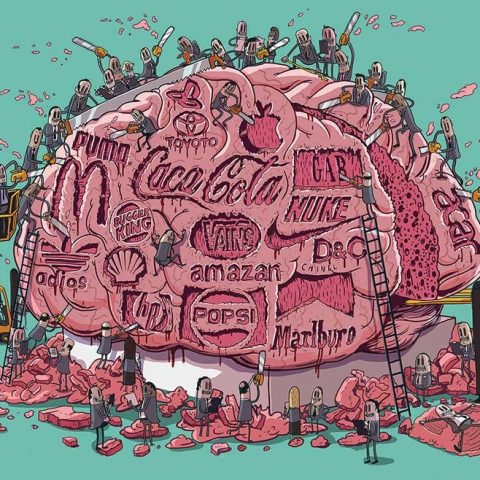
The consumption pattern
In the modern era, the capitalist system, like an inexorable machine, has standardized consumption, compelling individuals to follow a universal and homogeneous mould. Under the yoke of capitalism, goods have become not only products of necessity, but also symbols of status and conformity, obliterating the uniqueness and diversity that once made up people’s traditional identities. Standardized consumption essentially promotes the standardization of customs and values, insidiously replacing ancestral practices with habits dictated by a global market. Local traditions, those that have sustained communities over the centuries, end up fading in the face of the advance of consumer culture, which imposes a global monoculture of products and services. This phenomenon kills traditional identities, which are suffocated by the incessant pressure to adhere to what is new and popular, to the detriment of what is old and authentic. Communities, once robust in their peculiarities and rites, are now driven to adopt a way of life that mirrors the capitalist ideal of continuous and unbridled consumption. The damaging effect of this is the dilution of traditional heritage and the fraying of community ties, replaced by an ephemeral and superficial communion of consumers. Capitalism, then, in its incessant quest for the constant accumulation of capital, profit and expansion, fosters the disintegration of traditions and identities, condemning them to oblivion in favor of an illusory and volatile modernity.
Let’s take a look at a practical and unsurprising example of how the standardization of consumption by capitalism unfolds in all parts of the world. Nowadays, someone from Beijing or Berlin dresses in practically the same style as someone from Rio de Janeiro or a man from San Diego. Clothing, once marked by the cultural particularities of each region, has been standardized by global brands that dictate trends and fads, thus erasing traditional distinctions. This standardization manifests itself not only in dress, but also in the consumption of products, music and the arts. An individual, whether Chinese, German, Brazilian or American, is now exposed to and inclined to consume the same products – be they technological, food or entertainment – that are promoted by transnational commercial behemoths. Local flavors, the typical delicacies of each land, are supplanted by fast food chains and industrialized foods that offer a homogeneous and global menu. Music and art, the ultimate expressions of a people’s culture and identity, have also suffered from this unification. The songs you hear on the radio in Berlin are the same ones that echo through the streets of Rio de Janeiro, and the art that adorns galleries in Beijing is dictated by a global market that imposes its tastes and preferences. Local and traditional music, art that speaks to the soul of each people, is often relegated to oblivion, buried under the weight of what is widely promoted and marketed. We find ourselves entangled in a web of standardized consumption that murders traditional identities, replacing the rich tapestry of cultural diversity with a monochrome, uniform fabric. In its usurious grip, the socio-economic dynamic under the reins of the Goldene Internationale has forged a world where cultural differences are blurred and the identity of each people is sacrificed on the altar of global consumption. This is the origin of the globalization of world capitalism, which, consequently, is a world without a homeland or a nation.
It is therefore essential to recognize the intrinsic value of traditional identities and fight for their preservation in the face of the overwhelming power of standardized consumption. Only in this way can we ensure that the cultural riches and memories of peoples are not obliterated by an economy that, at its core, values profit (the cult of Mammon) more than the lives of workers and the peoples of the world.
An Alle, Alle!
Author of the post

